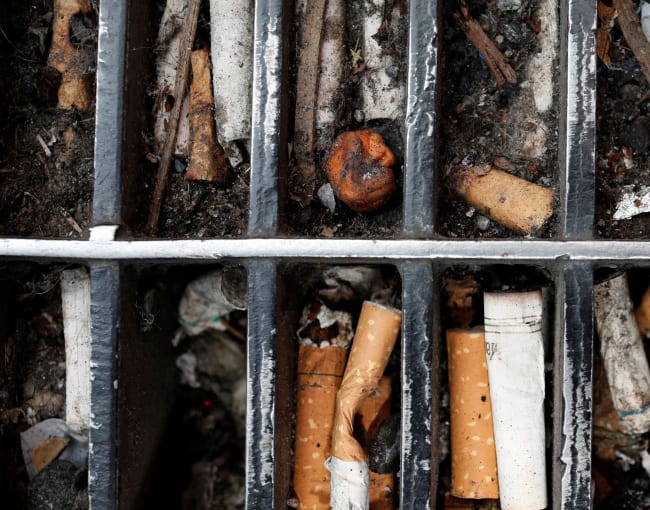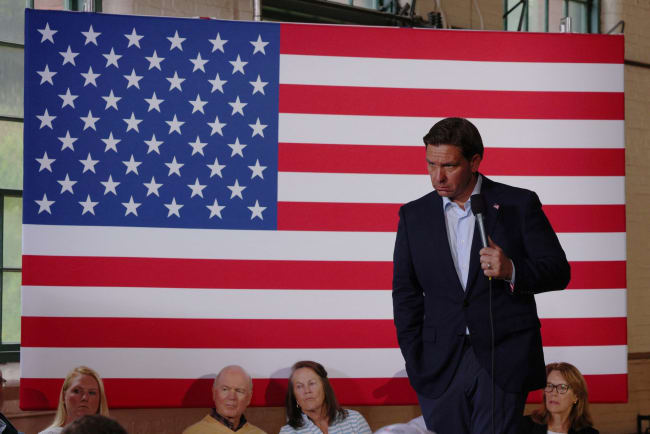News analysts perceived Thursday's presidential debate as a hearty victory for former President Donald Trump over a faltering President Joe Biden, setting off a cascade of panic within the Democratic Party that is overshadowing the policy discussion the two candidates held. Among the chaotic range of topics the debate moderators and the candidates raised, however—from President Biden's age and President Trump's felony convictions to their ability to play golf—a handful of questions and answers about abortion and drug prices cast health-care policy as a salient election issue.
Leading up to the debate, several health-care issues had emerged as potential election priorities. For Biden, early campaign efforts tout his signature health-care legislation, the Inflation Reduction Act (IRA), which instituted provisions aimed at lowering prescription drug spending for Medicare patients. His campaign also accuses Trump of wanting to restrict access to reproductive care such as abortion and the Affordable Care Act (ACA).
Trump himself has stated that he is not running to eliminate the ACA but instead to improve the legislation and cut costs, and he recently walked away from endorsing a national abortion ban to instead leave it "up to the states to do the right thing."
Here is where the two candidates stood on health-care policy going into the debate and what the event revealed.
Abortion
Since the Supreme Court overturned Roe v. Wade in 2022 under a bench with three Trump-appointed judges, Biden and many in the Democratic Party have come out in staunch support of a federal guarantee to abortion access. Trump previously supported a national ban on abortion, but given the outcomes of the 2022 midterm elections and ballot referendums on abortion access in states such as Kansas and Ohio, he has backed off from that stance and said the issue should be determined by state legislatures. Trump and Biden are also at odds over their records on the Mexico City policy, which blocks U.S. foreign aid to nongovernmental organizations abroad that provide abortion-related services.

Headed into the debate, Politico expected Trump to be on the defensive in regard to his stance on abortion and reproductive health care given his vacillating statements on the issue over the years. Controversial topics such as the Alabama Supreme Court's ruling effectively halting in vitro fertilization (IVF) earlier this year—which Trump came out against even though some members of his party signaled a less clear stance—and the Supreme Court's recent decisions on the approval of the abortion pill mifepristone and restrictions on emergency abortions under the Emergency Medical Treatment and Active Labor Act have been front-of-mind for those focused on the reproductive health care at stake in this election.
Debate takeaways:
An early question about medication abortion prompted Trump to state his approval of the Supreme Court's decision to maintain access to mifepristone and that he would "not block" the availability of medication abortion, an issue which he had not explicitly commented on previously. Although clarifying his belief in "exceptions for rape, incest, and life of the mother" like "Ronald Reagan," he affirmed his support for the reversion of Roe v. Wade and the importance for states and the "vote of the people" to control the issue of abortion.
Trump's claim that Roe v. Wade allowed for late-term abortions "in the ninth month and even after birth" in Democrat-run states has been fact-checked as false by a number of media outlets, citing that no state laws permit infanticide and the Centers for Disease Control and Prevention statistic that fewer than 1% of abortions in the United States occur after 21 weeks.
In response, Biden defended Roe v. Wade by invoking its support from "the vast majority" of legal scholars and criticizing states with 6-week abortion bans, along with a warning about the criminalization of women who travel across state borders to seek abortions. When pressed on how far into pregnancy he supported the availability of abortion, Biden appeared to uphold the threshold of fetal viability established by the 1973 decision.
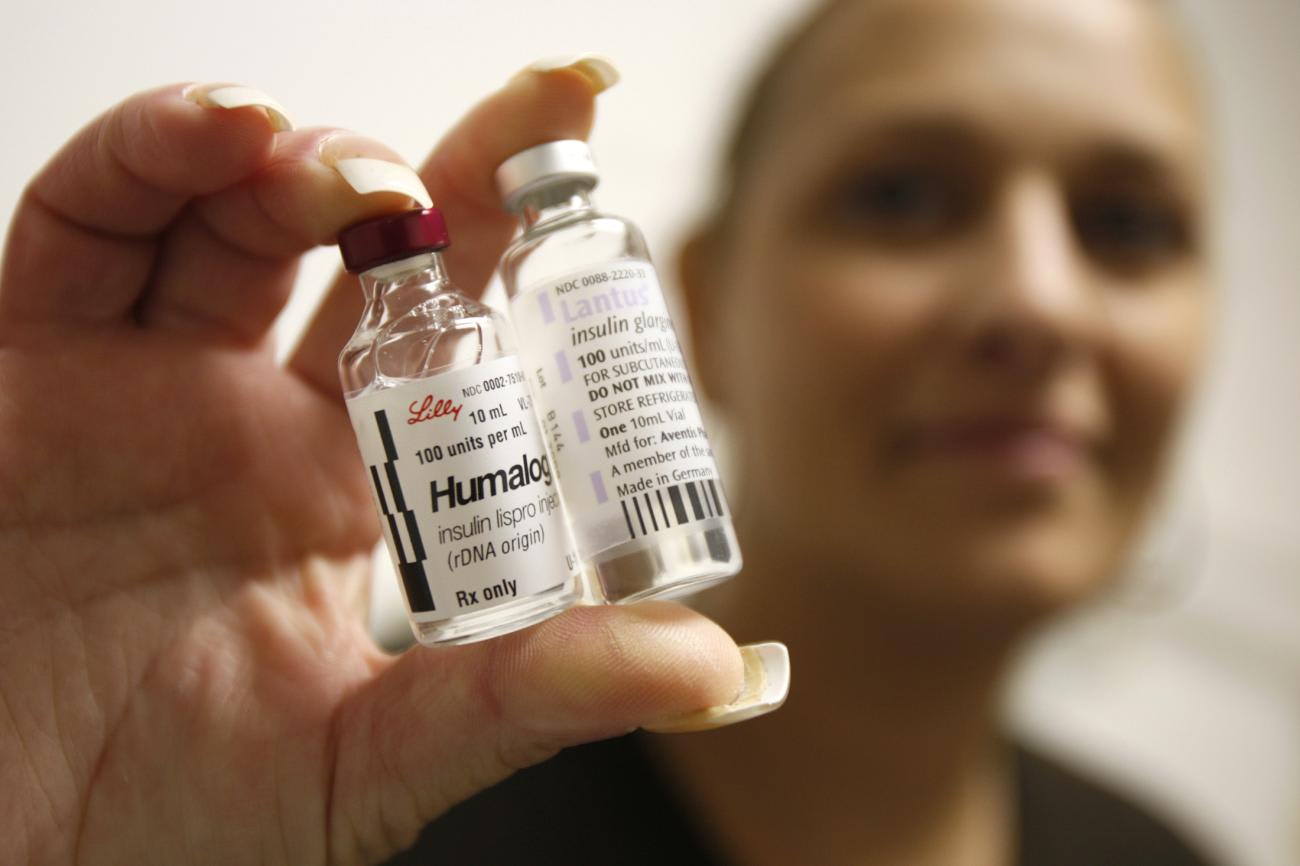
Drug Pricing
Both candidates have embraced lowering drug prices for Americans. During its tenure, the Trump administration made several announcements about its "historic commitment" to do so, and was the first administration to authorize state import of certain drugs from Canada to lower drug costs.
For Biden, emphasizing his drug pricing achievements under the IRA has been a priority, including the legislation's $35 cap on insulin costs and the provision for Medicare to negotiate the prices of a select number of drugs starting in 2026.
Most voters do not have much faith in either candidate to address prescription drug costs
A recent poll from KFF on voters' views of health policy issues revealed that approximately only a third of voters knew that there was a "federal law in place that requires the federal government to negotiate the price of some prescription drugs for people with Medicare or capping the cost of insulin for people with Medicare."
The same KFF poll, however, showed that most voters do not have much faith in either candidate to address prescription drug costs.
Debate takeaways:
As anticipated, Biden opened the night by discussing the IRA's achievements in bringing "down the price of prescription drugs" during the debate's first minutes. In leveraging his policy, Biden mistakenly stated (correcting himself later in the night) that the insulin cap for Medicare recipients was $15 per month, down from $400, and that the cap on out-of-pocket drug spending was $200. Per the IRA, the cap on insulin is $35 and the ceiling for drug spending is $2,000. The $400 monthly quote is a hyperbole, in reality representing the annual spending on insulin rather than monthly. He also accused Trump of campaigning to thwart Medicare price negotiations with pharmaceutical companies.
Trump for his part took credit for capping the price of insulin at $35 before Biden, saying "I'm the one that got the insulin down for the seniors." Although the Trump administration did launch a $35 insulin cap for some seniors through an optional pilot program, Biden instituted a mandatory cap that applies to more Medicare patient plans and more forms of insulin.
A KFF analysis estimated that Trump's pilot program capped insulin costs for approximately 800,000 beneficiaries, whereas the IRA's cap covers more than 3.3 million Medicare enrollees.
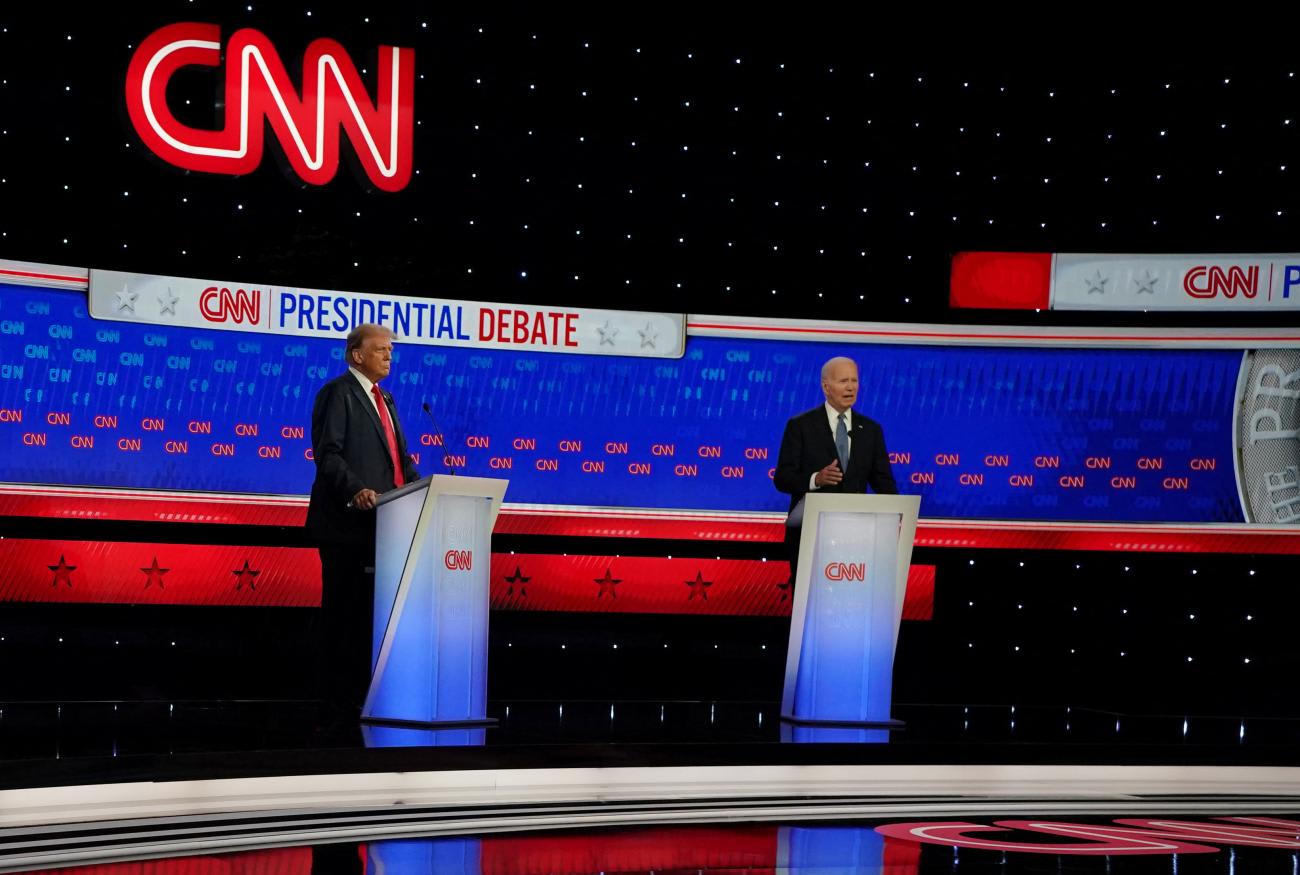
Entitlements (Medicaid/Medicare)
Trump's attempts to repeal the ACA, otherwise known as Obamacare, have reemerged as a talking point for Biden, whose campaign released an ad earlier this month claiming that his opponent is "coming for your health care," referencing those who benefit from the law's Medicaid expansion and the 100 million Americans who depend on the ACA's insurance protections for those with pre-existing conditions.
For his part, Trump stated in April that he will not aim to repeal ACA if elected this term and instead will focus on "improving" the legislation. Although Trump has yet to state what specific changes he would call for, House Republicans released a proposal to cut funding in March aimed at Medicaid expansion and the ACA's subsidies for insurance purchased through state marketplaces.
Most Democrats, Republicans, and Independents support ACA protections for people with pre-existing conditions
Most Americans—60%—polled by the health policy research group KFF favor the ACA, though views on its future depend on the party. Most Democrats, Republicans, and Independents support ACA protections for people with pre-existing conditions and want to extend financial assistance provided through the ACA marketplace. Yet Democrats and Republicans stand on opposite sides of whether to repeal and replace the law. Independents are split.
Popularity for expanding Medicaid in Republican nonexpansion states has also grown according to KFF polling. On Medicare, the nation's older voters, for it is a topic of concern, currently see Biden as more likely to protect their entitlement; however, issues of waste and fraud that Trump has discussed remain top-of-mind.
Debate takeaways:
The most widely shared mention of health-care entitlements from last night's debate came when early on Biden trailed off during a question about the national debt and abruptly stated that "we finally beat Medicare." Trump responded, "He did beat Medicare. He beat it to death."
More substantive discussion of Medicare and other entitlements saw accusations thrown by both candidates that the other was a threat to the future of the programs. Trump accused Biden of draining entitlements by providing Medicaid, Medicare, and Social Security to illegal immigrants; for his part, Biden stated that Trump would cut Social Security and Medicare, citing the plan proposed by House Republicans.
On the ACA, Biden referenced the provision protecting those with pre-existing conditions and warned that Trump would take this away. He also discussed the ACA in response to a question about waning support from Black voters, citing increased ACA insurance enrollment among Black Americans.
Trump did not comment on whether he would amend or repeal the ACA.
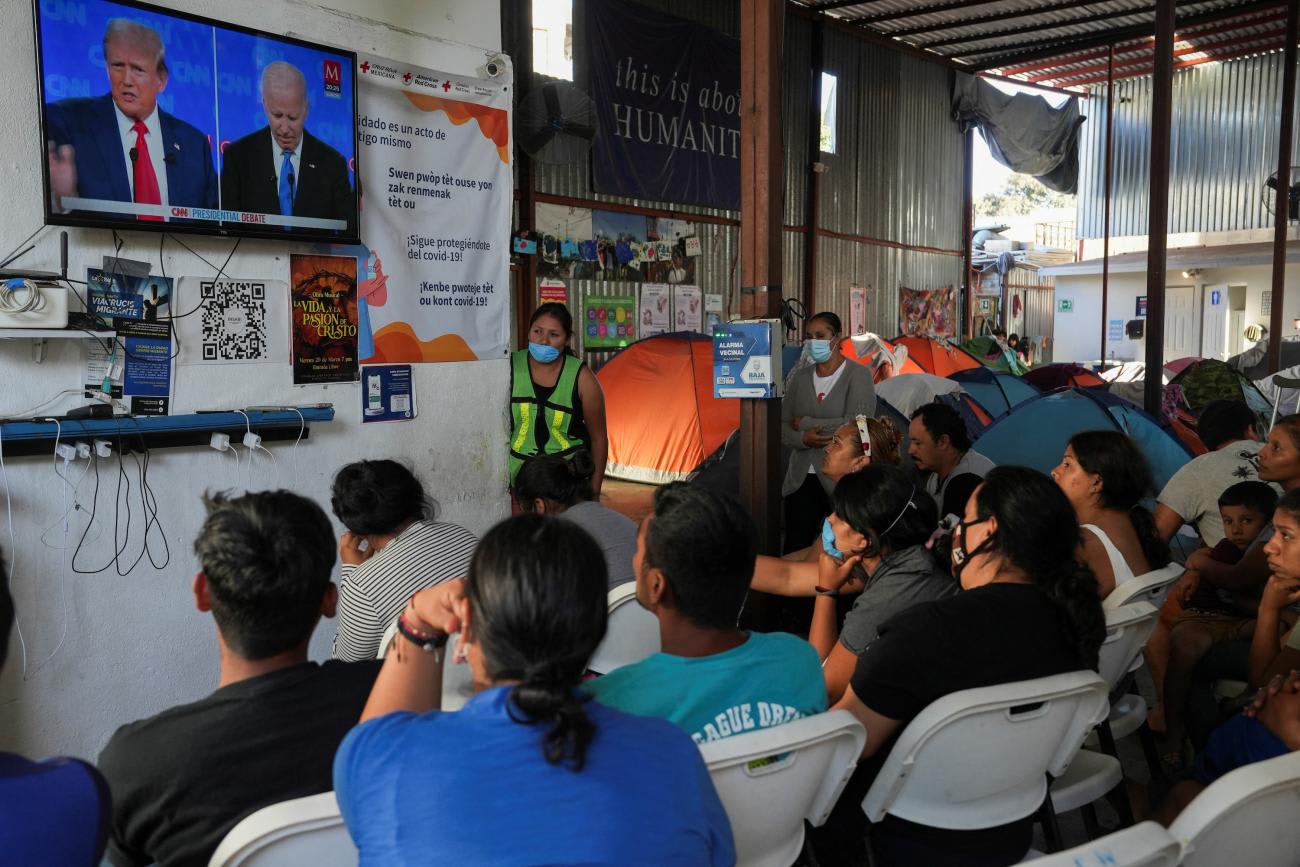
COVID-19 and Pandemics
Four years after COVID-19 emerged, with pandemic fatigue present on both sides of the political spectrum, it remained to be seen whether a core topic that defined the 2020 election would return to the political arena going into last night.
For Biden supporters, the pandemic has been perceived as an opportunity to discuss his administration's policies aimed at guiding an economic recovery out of lockdown as well as the rollout of the COVID-19 vaccine. Trump could claim credit for the development of the vaccine through his administration's launch of Operation Warp Speed, and questions on the origins of COVID-19, the topic of a recent hearing with Dr. Anthony Fauci, and mask mandates could also be leveraged as talking points.
Both candidates did not provide clear answers to how they would address surging opioid addiction rates
For those following global health, other topics that could be game in this election include U.S. involvement in the World Health Organization, from which the Trump administration threatened to withdraw the United States, and two international legal treaties on pandemic preparedness that have prompted divisive political rhetoric.
Debate takeaways:
The pandemic and COVID did emerge as talking points for both candidates, particularly in relation to the economy.
Trump claimed credit for both a booming pre-COVID economy and "getting us out of the COVID mess," referencing "therapeutics" developed under Operation Warp Speed and possibly the economic support provided the Coronavirus Aid, Relief, and Economic Security Act (CARES) signed by Trump in March 2020. Biden, on the other hand, described Trump's economy during the pandemic as one "in freefall" and with surging unemployment, citing his success in lower unemployment and creating new jobs.
Trump also described vaccine and mask mandates supported by Biden as a "disaster for our country" and accused Biden of allowing "more people" to die under his administration. Biden stressed the number of deaths from COVID-19 under the Trump administration and blamed pandemic inflation on Trump. Although these accusations are not new, compared with peer high-income countries, the United States had one of the highest death rates from COVID-19 in 2020, improving slightly in 2021 but still faring poorly in 2022.
Outside these topics, both candidates did not provide clear answers to how they would address surging opioid addiction rates. As the fallout from the debate continues to emerge, it remains to be seen if and how last night's debate will affect voter confidence in the candidates' health-care policies or assuage voter concerns over health-care access.
For more on where the two candidates stand on global health engagement, check out CFR's Election 2024 Candidate Tracker.


